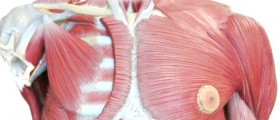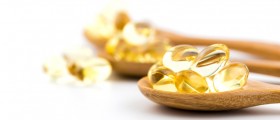
What is ornithine and what are the main characteristics?
Ornithine is an amino acid that the body produces during theproduction of urea, or more precisely, in the process of breaking down the arginine.It is also known as L-ornithine and L-aspartate. This amino acid plays animportant role in raising the levels of the growth hormone and insulin, which hasan impact on the anti-aging process and the body’s ability to build andmaintain the muscles during intense physical activities. Due to this ability,it can be found in the form of supplements, particularly those thatbodybuilders use when they want to increase their muscle mass. Besides thealready mentioned features, it is also believed that ornithine enhances theimmune system, improves the appetite (thus helping in gaining weight) andmetabolism of fat, and that it speeds up the process of healing and repairing thetissues after injuries, burns and infections. Some studies on this amino acid haveproven that those people who suffered from liver cirrhosis and particular brainabnormalities have shown signs of improvement after the treatment withornithine aspartate. What’s more, this improvement was noticed after only aweek. As for the foods in which ornithine can be found, beef, pork, eggs, milk,dairy products and fish are those that contain it in higher amounts.
What are the side effects that can be expected when usingornithine?
People who have healthy eating habits and regular mealsusually do not have problems with deficiency of this amino acid. The deficiency,however, occurs very rarely and usually in cases of malnutrition, or somesevere trauma, although it has been noticed that it can occur in pregnancyalso. The body produces it, but as for those who are interested in therecommended dosage on a daily basis, it is recommended not to take it in theamounts that exceed 10 grams. As for the use of this amino acid through the dietarysupplements, it is necessary to know that such thing is not recommended unlessin cases of deficiency, which are, as it has already been stated, very rare. Thebody may react negatively if the daily amount is higher than 110 grams, and itmay result in a number of gastrointestinal problems. On the other side, thebody does not benefit from taking additional amounts of ornithine, unless itreally needs it, which is a reason more to avoid supplements. For those who needit and do decide to take it through the supplements, consultations with aphysician are highly recommended.

















Your thoughts on this
Loading...